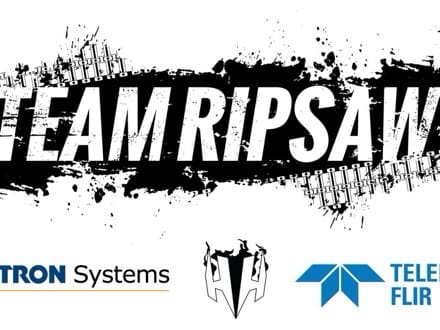
HUNT VALLEY, Md., October 3, 2024 – Textron Systems Corporation, a Textron Inc. (NYSE:TXT) company, announced today that Team RIPSAW — Textron Systems, its subsidiary, Howe & Howe and Teledyne FLIR Defense — has delivered two RIPSAW® M3 prototype vehicles to the U.S. Army for the competitive Robotic Combat Vehicle (RCV) Phase I: Platform Prototype program. The vehicles were delivered to Aberdeen Proving Ground in Maryland.
The RIPSAW M3 leverages a modular open systems architecture (MOSA) design and common chassis to support a variety of interchangeable payloads from a basic flat-top deck configuration. A rugged and reliable RCV platform, the vehicle is designed to meet Army requirements while preserving transportability and mission versatility.
“The RIPSAW M3 exemplifies the innovative technology Howe & Howe develops to support our customers,” said Senior Vice President, Mike Howe. “Designed for ease of integration with a common robotic core, the prototypes delivered represent the decades of experience in the ground robotics space our team possesses.”
“Team RIPSAW leverages the expertise of Textron Systems, Howe & Howe and Teledyne FLIR Defense, creating a mission-ready system to support the Army’s needs,” said Senior Vice President Air, Land and Sea Systems, David Phillips. “Our dedication to testing the prototype vehicles before delivery ensures we’re providing a rugged, reliable system.”
“We’re proud to be partnered with Textron Systems and Howe & Howe to deliver this unprecedented robotic platform to the U.S. Army,” said Dr. JihFen Lei, President of Teledyne FLIR Defense. “We’re excited to bring our expertise in uncrewed aerial systems, 360-degree situational awareness, and intelligent sensing technology onto the RIPSAW M3 that will give soldiers a decisive tactical edge and allow commanders to make better, faster decisions.”
Team RIPSAW has invested in this family of robotic vehicles since 2019 when the RIPSAW M5 system first debuted. Later variants, including the M5-E (electric) and M3 Tech Demonstrator, leveraged the team’s collaboration with industry partners, academia and the U.S. Army to perform multiple mission sets in various environmental and test conditions. Since 2019, the RIPSAW family of vehicles have amassed over 4,700 miles of durability testing.

